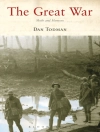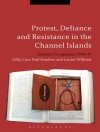Of the thousands of children and young adults who fled Nazi Germany in the years before the Second World War, a remarkable number went on to become trained historians in their adopted homelands. By placing autobiographical testimonies alongside historical analysis and professional reflections, this richly varied collection comprises the first sustained effort to illuminate the role these men and women played in modern historiography. Focusing particularly on those who settled in North America, Great Britain, and Israel, it culminates in a comprehensive, meticulously researched biobibliographic guide that provides a systematic overview of the lives and works of this “second generation.”
Table of Content
List of Tables
Preface
Hartmut Lehmann and James J. Sheehan
Introduction: Refugees from Nazi Germany as Historians: Origins and Migrations, Interests and Identities
Andreas W. Daum
PART I: TESTIMONIES
Chapter 1. “It Needs Hardly Emphasis How Deeply My Own Generation, the Second, is Indebted to the First”
Klemens von Klemperer
Chapter 2. “A Wanderer between Several Worlds”
Walter Laqueur
Chapter 3. External Events, Inner Drives
Peter Paret
Chapter 4. Not Exile, But a New Life
Fritz Stern
Chapter 5. History and Social Action beyond National and Continental Borders
Georg G. Iggers
Chapter 6. Some Issues and Experiences in German-American Scholarly Relations
Gerhard L. Weinberg
Chapter 7. Some Reflections on the Second Generation
Hanna Holborn Gray
Chapter 8. A Life Between Homelands
Peter Loewenberg
Chapter 9. Out of Germany
Renate Bridenthal
PART II: APPROACHING THE SECOND GENERATION
Chapter 10. The Second Generation: Émigré Historians of Modern Germany in Post-War America
Catherine Epstein
Chapter 11. Thinking About the Second Generation Conceptually
Volker R. Berghahn
PART III: ÉMIGRÉS AND THE WRITING OF HISTORY
Chapter 12. The Tensions of Historical Wissenschaft: The Émigré Historians and the Making of German Cultural History
Steven E. Aschheim
Chapter 13. From the Margins to the Mainstream: Refugees and the Successors on the Jewish Questions, Antisemitism, and the Holocaust in German History
Jeffrey Herf
Chapter 14. Reluctant Return: Peter Gay and the Cosmopolitan Work of a Historian
Helmut Walser Smith
Chapter 15. Out of the Limelight or In: Raul Hilberg, Gerhard Weinberg, Henry Friedlander, and the Historical Study of the Holocaust
Doris L. Bergen
Chapter 16. Blazing New Paths in Historiography: ‘Refugee Effect’ and American Experience in the Professional Trajectory of Gerda Lerner
Marjorie Lamberti
PART IV: COMPARATIVE AND TRANSNATIONAL PERSPECTIVES
Chapter 17. German Émigré Historians in Israel
Shulamit Volkov
Chapter 18. German and Austrian Émigré Historians in Britain after 1933
Peter Alter
Chapter 19. The Second-Generation Émigrés’ Impact on German Historiography
Philipp Stelzel
Chapter 20. Encounters with Émigré Historians of the First and Second Generation
Gerhard A. Ritter
Chapter 21. Influences: A Personal Comment
Jürgen Kocka
PART V: BIO-BIBLIOGRAPHIC GUIDE
Chapter 22. Émigrés in the Historical Disciplines: Research Perspectives
Andreas W. Daum
Chapter 23. Biographies
Andreas W. Daum and Sherry L. Föhr
Selected Bibliography
Index
About the author
Andreas W. Daum is Professor of History at the State University of New York at Buffalo. He has authored several books on German and international history. A former John F. Kennedy Fellow at Harvard University, he is the recipient of fellowships from, among others, the National Endowment for the Humanities, the American Philosophical Society, and the Alexander von Humboldt Foundation.












